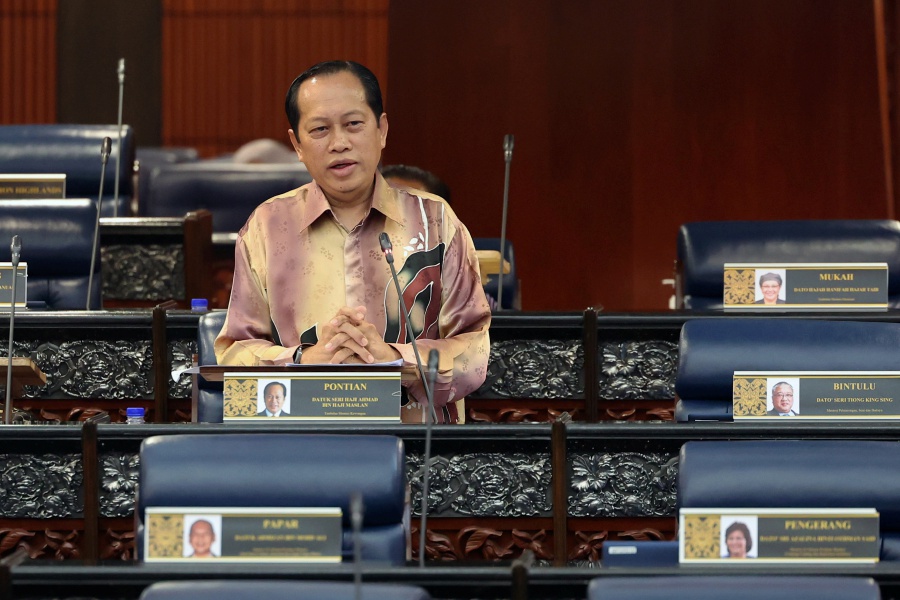KUALA LUMPUR: The government will not reintroduce the goods and services tax (GST) this year, but does not discount the possibility of implementing it in the future.
Deputy Finance Minister I Datuk Seri Ahmad Maslan reiterated that the government did not plan to reintroduce the GST, but would introduce progressive taxation systems by expanding the tax base to the wealthy.
For example, he said, the government would introduce the luxury tax, capital gains tax on the disposal of unlisted shares, and vape or e-cigarette tax.
"GST can be a progressive tax in the future, by having zero-rated goods and services typically used by those who are less fortunate.
"This step, used from 2015 to 2018, ensured that this group of consumers could enjoy a reasonable standard of living.
"If the GST is reintroduced, Malaysia's taxation system in general will remain.
"It will be progressive and the wealthy will bear the tax burden more than the less wealthy, or at the very least we will have a proportional taxation system where each group bears the same tax rate limited to their respective abilities."
He said this in response to a question from RSN Rayer (Pakatan Harapan-Jelutong), who wanted to know if the unity government would reintroduce GST.
Explaining further, Ahmad said 174 out of 193 countries recognised by the United Nations had implemented GST or a value added tax.
This, he said, was equivalent to 90 per cent of all countries.
"There's no way 174 countries made a mistake. It would be different if only 20 countries implemented the GST.
"That is why in the future, GST can actually help the country gain more income, and with that income, we can help the needy.
"Perhaps now we want to eradicate the hardcore poor, but who knows, with GST we can eradicate poverty.
"We are still studying and evaluating the right time to reintroduce GST… we are not ditching (the idea), but it will not be implemented this year."
Ahmad, who is also Pontian member of Parliament, said the country gained RM133.1 billion in net revenue from GST when it was enforced in 2015 to 2018.
He said the nett revenue from GST was RM27.3 billion in 2015, RM41.2 billion (2016), RM44.3 billion (2017) and RM20.2 billion (2018).
In comparison, he said the government gained RM27 billion from the sales and services tax (SST) in 2019, RM26 billion in 2020, and RM25 billion in 2021.
"Whether we can reduce the fiscal deficit depends on the decision we make on GST.
"But we are trying other ways to manage, such as e-invoicing by the Inland Revenue Board to issue electronic invoices to entrepreneurs. This is to reduce a black economy.
"The black economy makes up 30 per cent of our gross domestic product (GDP), and GST can reduce this by 20 per cent.
"We hope this e-invoicing will make businesses more transparent with their revenue collection before a decision is made on GST," he added.


